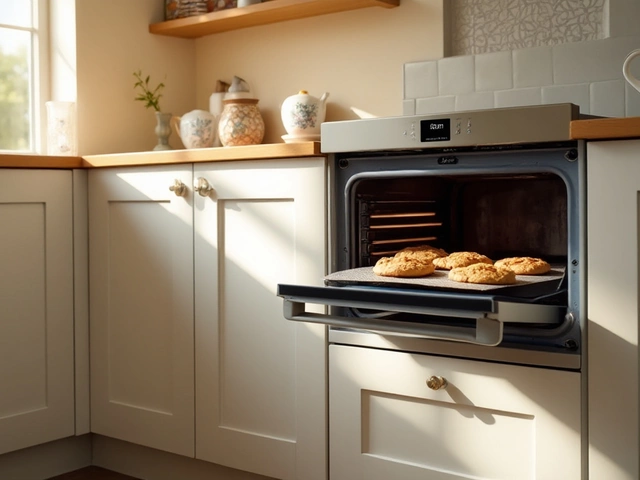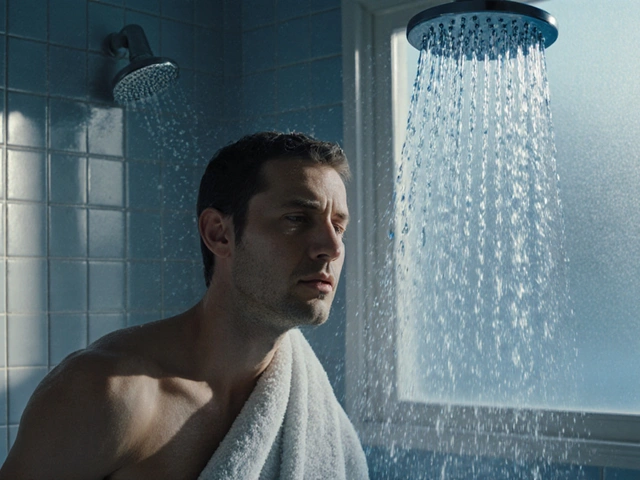If one of your home appliances stops working, it can feel like the whole house is on hold. The good news? Many issues are easy to spot and fix with a few tools and a little patience. Below you’ll get straight‑to‑the‑point advice that works for washing machines, ovens, fridges, dishwashers, and more. No fluff, just the steps that actually get your gear running again.
First, identify the symptom. Is the washing machine not spinning? Does the oven stay cold? Does the fridge hum but stay warm? Write down exactly what’s happening – that will guide the right fix.
Washing machines often stop spinning because the door latch isn’t locking, the drive belt is worn, or the load is unbalanced. Unplug the unit, check the latch for debris, and make sure the belt isn’t cracked. If the belt looks fine, redistribute the laundry and try a short cycle.
Electric ovens that won’t heat usually have a faulty heating element or a broken thermostat. Remove the oven’s back panel, locate the element, and test it with a multimeter. A zero reading means the element needs replacement – a job most DIYers can finish in under an hour.
Fridges that run but don’t cool often suffer from a dirty condenser coil or a malfunctioning evaporator fan. Pull the fridge away from the wall, brush off any dust on the coils, and listen for the fan when the door is open. If the fan is silent, it may need a new motor.
Dishwashers that stop mid‑cycle frequently have a clogged pump filter. Remove the bottom rack, locate the filter (usually near the spray arm), and clean out food particles. Run a short wash to see if the problem is gone.
For extractor fans in kitchens or bathrooms, a whining noise means the motor bearings are wearing out. Turn off the power, remove the fan cover, and check the blade for wobble. Tightening the mounting screws or replacing the fan can restore quiet operation.
In every case, keep a simple checklist: power off, inspect obvious wear, clean any dust or debris, test with a multimeter if you have one, then replace the faulty part. Most parts are cheap and sold at local hardware stores.
DIY works for many fixes, but some jobs need a qualified technician. If you’re dealing with gas‑powered appliances, such as boilers or gas ovens, never attempt a repair yourself – the risk is too high. Also, if a water heater keeps resetting, it could be an electrical fault that requires a certified plumber.
Another red flag is a persistent leak in a washing machine or dishwasher that you can’t locate. Water damage can spread quickly, and a professional will have the right tools to find and seal the source.
When the repair cost approaches half the price of a new appliance, it’s time to weigh replacement. Our team in Bognor Regis can give you a clear quote and help you decide whether fixing or buying makes sense for your budget.
Finally, if an appliance shows any sign of smoke, sparks, or a burnt smell, shut it down immediately and call an expert. Those clues point to an electrical short that only a trained engineer should handle.
Whether you’re tackling a simple filter clean or need a full service, the right approach saves time, money, and headaches. Keep this guide handy, and you’ll know exactly what to try first and when to pick up the phone for professional help.

Got an appliance that isn’t working right? The way you describe it can make or break your service experience. This article breaks down how to explain what’s wrong with your appliance, what details really matter, and how to avoid confusion. Learn which features, model numbers, and problem signs technicians care about. Save time and frustration on your next repair call.

An electric oven is a staple in most kitchens, used for everything from baking cookies to roasting savory meals. Knowing how long an electric oven is expected to last can help homeowners budget and plan for replacement or repairs. This article explores the average lifespan of electric ovens, factors influencing their durability, and tips on maintenance to extend the life of the appliance. Understanding these aspects will aid in maximizing the utility and performance of your oven.

Leaving an electric oven on overnight sounds harmless, but it could spell real trouble. Learn the risks, facts, and safer options for your late-night cooking needs.

Extractor fans are crucial for maintaining fresh air and reducing humidity in various parts of a home. When these fans malfunction, it's important to know who to call for repairs. This article guides homeowners on how to find reliable extractor fan repair services. We'll look at why professional help is essential and what to consider when selecting a repair technician.

Is your heat pump running but not cooling your home? Learn the real causes, expert troubleshooting tips, and practical solutions to get your comfort back.

Find out why your hot water vanished, walk through quick DIY checks, learn simple fixes, and know when to call a professional for reliable heat restoration.